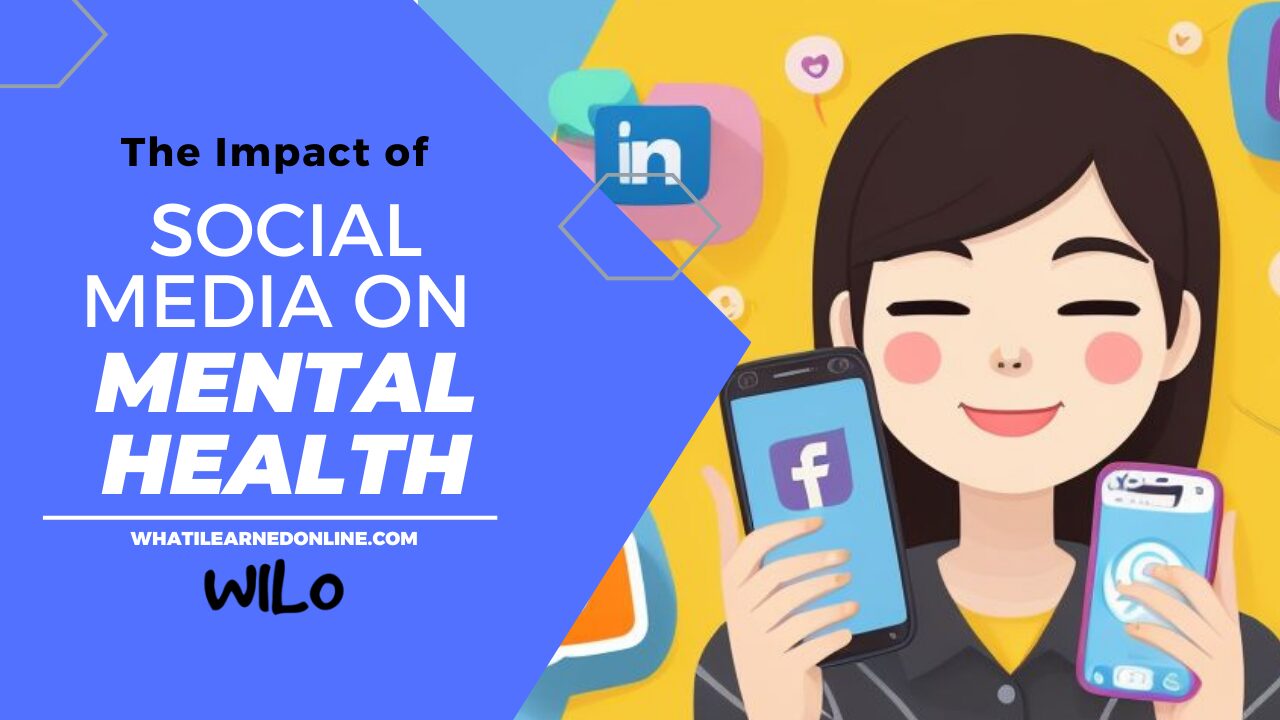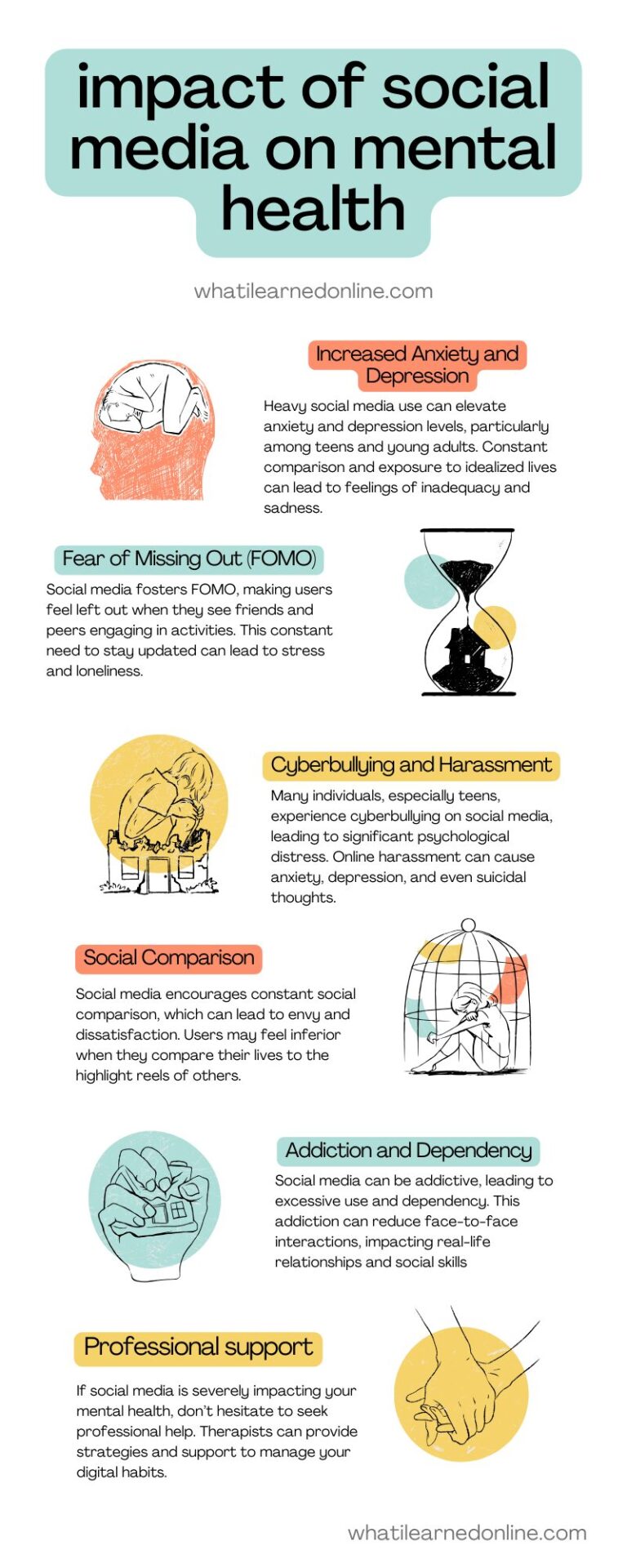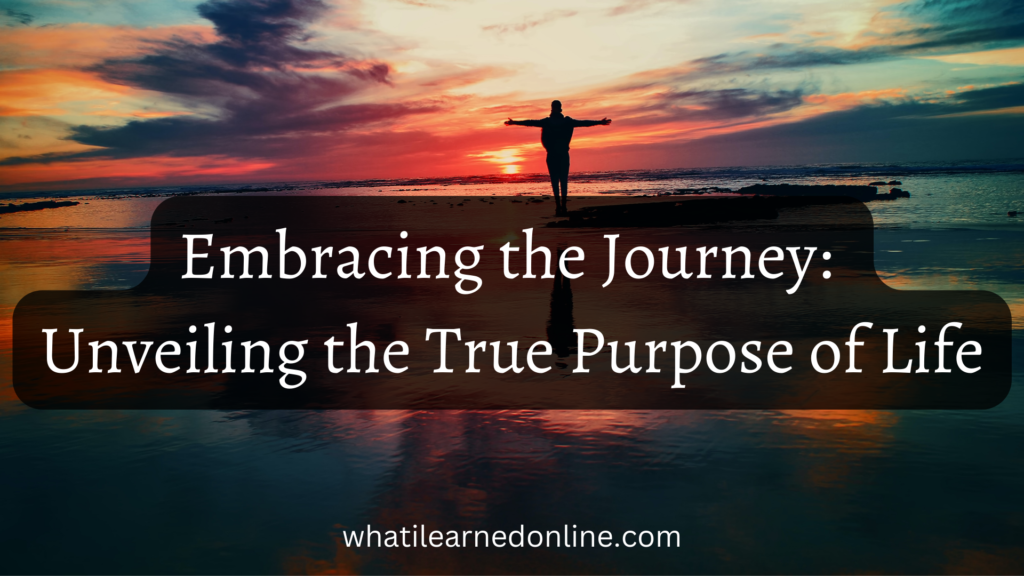
Hey there! As a tech enthusiast in my mid-20s who loves sketching, gardening, and diving into self-help and human psychology books, I’ve become increasingly curious about how social media affects our mental health. what is the impact of social media on mental health? This curiosity led me to dive deep into research and personal observations, which I’m excited to share with you today. In this post, we’ll explore the psychological impact of social media and how we can navigate the digital age without compromising our well-being.
Table of Contents
The Evolution of Social Media
First off, let’s set the stage by understanding the rise of social media. Platforms like Facebook, Instagram, Twitter, and TikTok have drastically changed how we connect, share, and consume information. As of 2024, more than 4.6 billion people are active social media users worldwide. These platforms offer a myriad of benefits – from staying in touch with friends and family to discovering new interests (like my recent fascination with rare plant varieties).
However, it’s essential to recognize the dual nature of social media – while it can connect us, it also has the potential to negatively impact our mental health.

The Psychological Impacts of Social Media
1. Comparison and Self-Esteem Issues
One of the most significant effects of social media is the tendency to compare ourselves with others. We see curated highlights of people’s lives, which can make us feel inadequate. Imagine you’re scrolling through Instagram and see someone’s perfectly filtered vacation photos or their seemingly perfect relationship. You might start questioning why your life isn’t like that.
Example 1: After a long, stressful week at work, you open Instagram to see a friend’s post about their promotion. Instead of feeling happy for them, you might feel a pang of jealousy and self-doubt.
Example 2: You post a sketch you’re proud of, only to receive minimal likes compared to someone else’s artwork. This can make you question your talent and worth.
Example 3: You see influencers leading glamorous lives and feel your everyday routine is mundane in comparison.
Research Insight: A study by the University of Pennsylvania found that limiting social media usage to 30 minutes a day significantly reduces feelings of loneliness and depression .
My Approach: To combat these feelings, I started a practice of daily gratitude journaling, focusing on my achievements and positive aspects of my life. This shift in perspective helped me appreciate my journey rather than compare it to others.
2. Anxiety and FOMO (Fear of Missing Out)
The constant influx of notifications and updates can create a sense of urgency and anxiety. We don’t want to miss out on anything exciting, leading to FOMO. This can disrupt our peace of mind and make us feel like we’re always on edge.
Example 1: You’re in the middle of reading a captivating book on emotional intelligence when your phone buzzes. You feel compelled to check it, pulling you out of your serene reading bubble.
Example 2: You see posts about events or gatherings you weren’t invited to, making you feel left out and anxious.
Example 3: Late-night scrolling through stories makes you feel like everyone else is having a better time.
Research Insight: Studies suggest that high social media usage is linked to increased anxiety levels, primarily due to FOMO .
My Approach: To manage this, I set specific times for checking social media and disabled non-essential notifications. This helped me stay focused on my activities and reduce anxiety.
3. Cyberbullying and Negative Interactions
Unfortunately, social media can also be a breeding ground for negative interactions and cyberbullying. This can severely affect mental health, leading to depression, anxiety, and even suicidal thoughts in extreme cases.
Example 1: You post a sketch you’re proud of, only to receive negative comments. That one hurtful remark can overshadow all the positive feedback, affecting your self-worth.
Example 2: You share a personal experience, and someone leaves a harsh comment, making you regret opening up.
Example 3: Participating in online discussions and facing trolls or hostile responses.
Research Insight: According to the Cyberbullying Research Center, about 37% of young people have been bullied online .
My Approach: I started curating my feed to follow accounts that inspire and uplift me. I also report and block negative interactions to create a positive online environment.
4. Sleep Disruption
Scrolling through social media late into the night can interfere with your sleep patterns. The blue light emitted by screens can trick your brain into thinking it’s still daytime, making it harder to fall asleep.
Example 1: You’re about to sleep but decide to check your phone one last time. Before you know it, you’ve spent an hour mindlessly scrolling, cutting into your precious sleep time.
Example 2: Late-night notifications wake you up, disrupting your sleep cycle.
Example 3: Engaging in late-night chats that keep your mind active.
Research Insight: The Sleep Foundation reports that excessive screen time, especially before bed, can disrupt your sleep cycle, leading to poor sleep quality and subsequent mood disturbances .
My Approach: I implemented a digital curfew, avoiding screens at least an hour before bed and engaging in calming activities like reading a book or sketching instead.
5. Addiction and Reduced Productivity
Social media can be addictive. The constant need for validation through likes and comments can create a cycle of dependency, reducing productivity in other areas of life.
Example 1: You set out to spend just five minutes on Facebook but end up losing an hour that could have been spent on sketching or gardening.
Example 2: You start your day with social media, which eats into your productive morning hours.
Example 3: Continuous checking of social media during work hours, leading to distractions and unfinished tasks.
Research Insight: A study published in the Journal of Behavioral Addictions found that social media addiction shares similar psychological effects as substance abuse, including withdrawal and relapse .
My Approach: I designated specific times for social media and prioritized my hobbies and work. This balance helped improve my productivity and overall well-being.
6. Reduced Attention Span
Social media’s constant stream of short, engaging content can impact our ability to focus on longer tasks. This can lead to a fragmented attention span, making it harder to concentrate on reading a book, completing work tasks, or even having a deep conversation.
Example 1: You find it difficult to read a book for more than a few minutes without checking your phone.
Example 2: During conversations, you’re tempted to check your notifications, leading to fragmented and less meaningful interactions.
Example 3: Struggling to complete tasks without multitasking with social media.
Research Insight: A study published in the Journal of Communication found that heavy social media users tend to have shorter attention spans and lower information retention rates .
My Approach: To counter this, I practice mindfulness and engage in activities that require sustained attention, like reading( I like to read about the life of famous and inspiring people). These activities help me train my focus and enjoy deeper, more meaningful experiences.
7. Perception of Reality
Social media can distort our perception of reality, making us believe that others’ lives are perfect while ours are lacking. This can lead to feelings of dissatisfaction and low self-esteem.
Example 1: You see influencers leading glamorous lives and feel your everyday routine is mundane in comparison.
Example 2: You compare your real-life struggles with the filtered and curated highlights of others’ lives, feeling inadequate.
Example 3: Feeling pressured to live up to unrealistic standards portrayed online.
Research Insight: Research published in Computers in Human Behavior highlights that social media users often compare themselves to others, leading to feelings of envy and decreased life satisfaction .
My Approach: I remind myself that social media is a highlight reel, not an accurate depiction of everyday life. Practicing gratitude and focusing on my personal growth helps me maintain a healthier perspective.
How to Navigate Social Media Mindfully
Now that we’ve covered the potential downsides, let’s talk about how to navigate social media in a way that promotes mental well-being.
1. Set Boundaries
Create specific times for social media use and stick to them. Avoid using social media first thing in the morning or right before bed. Instead, use this time for more grounding activities like journaling or reading.
Example: I’ve started dedicating the first hour of my morning to sketching while enjoying my coffee, rather than scrolling through my feed.
2. Curate Your Feed
Follow accounts that inspire and uplift you. Unfollow or mute accounts that make you feel negative about yourself. Remember, your feed should be a source of positivity.
Example: I follow art pages, gardening tips and inspirational quotes, which add value to my daily life.
! You can follow LifeSutras on Instagram for daily motivational and inspiring quotes.
3. Practice Digital Detoxes
Take regular breaks from social media. Use this time to reconnect with yourself and engage in offline activities you love, like gardening or reading.
Example: I’ve made it a habit to spend my weekends away from social media, focusing on painting and catching up on books.
4. Engage Meaningfully
When you do use social media, engage in meaningful interactions. Comment thoughtfully, share positive content, and connect genuinely with others.
Example: Instead of passively scrolling, I make it a point to leave encouraging comments on other artists’ posts, fostering a supportive community.
5. Monitor Your Mental Health
Be mindful of how social media makes you feel. If you notice negative emotions arising, take a step back and reassess your usage.
Example: I keep a journal where I jot down my feelings after using social media. This helps me identify patterns and adjust my habits accordingly.
6. Educate Yourself
Understanding the psychological impact of social media can empower you to make better choices. Read up on the latest research and stay informed.
Example: I regularly read articles and books on psychology and digital well-being, which helps me stay aware of potential pitfalls and strategies to avoid them.
7. Seek Professional Help if Needed
If you find social media significantly affecting your mental health, don’t hesitate to seek help from a mental health professional. They can provide strategies and support tailored to your needs.
Example: A friend of mine found great relief by talking to a therapist about their social media anxiety, learning coping mechanisms that work for them.
Conclusion
Social media is a powerful tool that, when used mindfully, can enhance our lives. However, it’s essential to be aware of its potential impact on mental health and take proactive steps to navigate it healthily. By setting boundaries, curating your feed, practicing digital detoxes, engaging meaningfully, monitoring your mental health, educating yourself, and seeking help if needed, you can enjoy the benefits of social media without falling into its traps.
Remember, your mental well-being is paramount. Social media should serve you, not the other way around. Let’s use it as a tool to inspire, connect, and grow, rather than a source of stress and comparison. Happy scrolling, mindfully!
Disclaimer: The information provided in this post is for educational purposes only and is not a substitute for professional mental health advice. Always consult with a qualified healthcare provider for any mental health concerns or questions. If you are in crisis, please seek immediate help from a mental health professional


